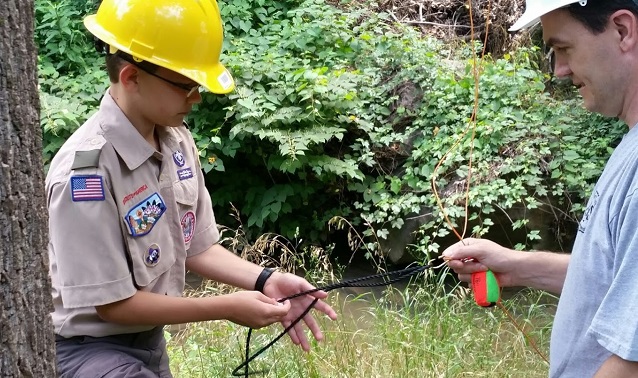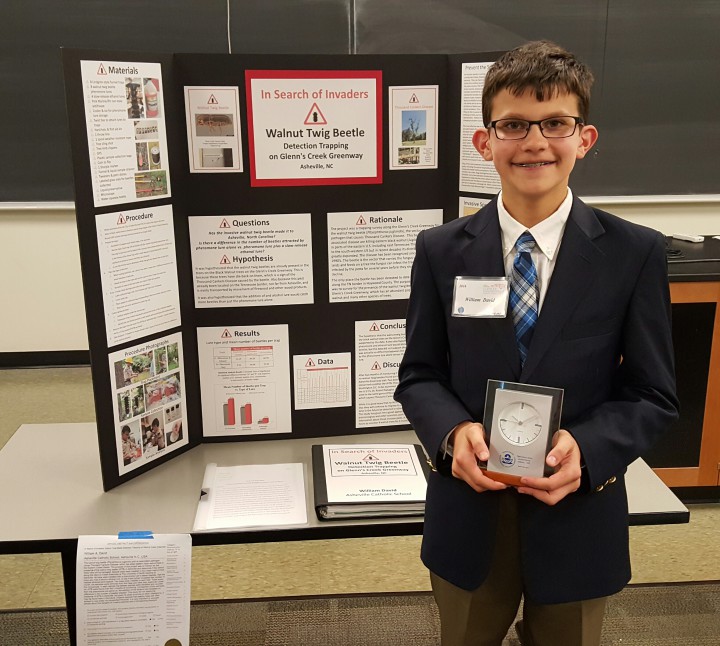Press release from U.S. Forest Service, Southern Research Station:
A project between a local student and researchers with the U.S. Forest Service Southern Research Station (SRS) was the winner of the Environmental Protection Agency Award for Promoting Sustainability at the 2016 North Carolina Science and Engineering Fair on April 1, 2 in Raleigh, N.C. William David, a 7th Grader at Asheville Catholic School, took top honors with his project titled “In Search of Invaders: Walnut Twig Beetle Detection Trapping on Glenn’s Creek Greenway.”
William began his work last summer with SRS researchers Bud Mayfield, project leader, Insects, Diseases, and Invasive Plants unit and Bryan Mudder, Biological Science Technician. William helped set out the traps along a greenway near the SRS’s headquarters in Asheville. The traps were being used to detect whether an invasive species, the walnut twig beetle, had invaded the trees along the greenway. The traps were removed in September. Fortunately, no walnut twig beetles were found. “In addition to looking for the walnut twig beetle, William also identified and counted all of the bark and ambrosia beetle species he collected in the traps, and evaluated two different lure treatments to attract the insects,” said Mayfield.
“William demonstrated a real passion for environmental stewardship and a desire to make a difference in the fight against invasive species,” Mayfield said. “His enthusiasm, excellent organization, eagerness to learn, and attention to detail were all factors in the success of his project. It was a pleasure working with him!”
The walnut twig beetle carries the fungus that causes thousand cankers disease, which can kill an infected walnut tree over the course of a few years. It is believed that infested firewood is one cause of the spread of the beetle. Thousand cankers disease has been found in Tennessee, Virginia, Pennsylvania, Ohio, and Maryland. To date, the only confirmed location in North Carolina is along the Tennessee border in Haywood County. Projects like William’s assists researchers in identifying and combating the spread of the disease.
Before moving to the state finals his project won first place in the regional Junior Earth/Environmental Science category at the Region 8 Science Fair held at Western Carolina University in February. In addition to winning first place his project also received two individual sponsored awards: Highlands Biological Station, and the other by the event host Western Carolina University.




Before you comment
The comments section is here to provide a platform for civil dialogue on the issues we face together as a local community. Xpress is committed to offering this platform for all voices, but when the tone of the discussion gets nasty or strays off topic, we believe many people choose not to participate. Xpress editors are determined to moderate comments to ensure a constructive interchange is maintained. All comments judged not to be in keeping with the spirit of civil discourse will be removed and repeat violators will be banned. See here for our terms of service. Thank you for being part of this effort to promote respectful discussion.